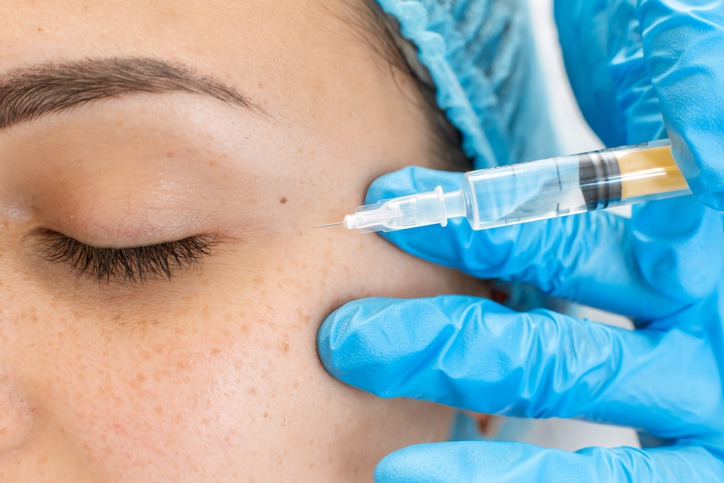
What Are the Steps for Nurses to Get Botox Injection Training?
Moving into the field of Botox injections as a nurse might seem challenging, but it’s entirely achievable with the right approach and resources. This article will guide you through the necessary steps and options available to get the proper training. Whether you’re wondering about certification requirements or looking for the right courses, this article will help you in this rewarding career shift.
What Is Botox Injection Training?
Botox injection training equips nurses with the knowledge and skills needed to administer Botox injections safely and effectively. Training typically covers anatomy, injection techniques, patient consultation, and managing potential complications.
If you’re considering specific training locations, you might find botox courses in Detroit to be particularly well-regarded. These courses are designed for healthcare professionals looking to build a foundation in aesthetic procedures.
How to Get Botox Injection Training
1. Meet Basic Requirements
Before you start your training journey, make sure you meet the basic prerequisites:
-
Hold an active nursing license (RN or LPN).
-
Have a clean disciplinary record with your licensing board.
-
Possess a minimum level of clinical experience, often around two years.
2. Research Training Programs
Not all Botox training programs are created equal, so it’s essential to do your homework:
-
Accreditation: Look for training programs that are accredited by recognized institutions or professional organizations. Accreditation ensures that the program meets certain quality standards and adheres to industry best practices, providing you with assurance of the program’s credibility and legitimacy.
-
Reviews and Testimonials: Before enrolling in a training program, take the time to read reviews and testimonials from past participants. Feedback from individuals who have completed the program can provide valuable insights into the quality of instruction, the relevance of course content, and the overall learning experience. Positive reviews from satisfied participants are a good indicator of a reputable training program.
-
Practical Training Sessions: Ensure that the training program includes practical hands-on training sessions. Theory-based learning is important, but practical experience is essential for developing proficiency in Botox injection techniques. Look for programs that offer ample opportunity for supervised practice on live models or simulation devices to enhance your skills and confidence as a practitioner.
3. Enroll in a Botox Training Course
Once you have identified the right training program, the next step is enrollment. Many programs offer flexible schedules, including weekend and evening classes, to accommodate working nurses.
4. Complete Didactic and Practical Training
During training, you’ll cover both classroom-style learning (didactic) and hands-on practice (practical). Topics generally include:
-
Facial anatomy and physiology.
-
Injection sites and techniques.
-
Dilution and dosage calculations.
-
Patient assessment and consultation.
5. Attain Certification
After completing your training course, you will usually receive a certificate of completion. However, some states may require additional certification or registration. Make sure you understand the regulations in your state to ensure you’re fully compliant.
6. Finding Practical Opportunities
Gaining practical experience is vital. Here’s how to get started:
Intern or Shadow Experienced Injectors
Working alongside seasoned professionals can provide invaluable insights and help you build confidence in your skills. Many training programs offer internships as part of their curriculum.
Join Aesthetic Nursing Associations
Membership in professional organizations can offer networking opportunities, access to resources, and ongoing education. Some notable organizations include:
-
American Society of Plastic Surgical Nurses (ASPSN).
-
International Society of Plastic and Aesthetic Nurses (ISPAN).
Consider Becoming a Botox Injection Model
If you want to become a botox model, it can offer numerous benefits, including firsthand experience with the procedure and insight into patient perspectives. While becoming a model might not be for everyone, it’s an option worth exploring for those curious about both ends of the injection needle.
7. Staying Updated in the Field
Continuing Education
The field of aesthetic nursing is always evolving. To stay current, consider investing in continuing education:
-
Attend conferences and workshops.
-
Read up on the latest research and trends.
-
Take additional courses to add new skills to your repertoire.
Advanced Injection Courses
Once you’ve got the basics down, you might want to pursue this nurse injector course to enhance your expertise further. These advanced courses typically cover more complex procedures and advanced techniques, positioning you as an expert in the field.
Setting Up Your Practice
Legal Aspects
Before you start offering Botox injections, make sure you’re compliant with local laws and regulations. This typically involves:
-
Understanding your state’s scope of practice laws.
-
Securing any necessary business licenses.
-
Obtaining professional liability insurance.
Marketing
Effective marketing can make a significant difference in building your client base. Consider:
-
Creating a professional website.
-
Utilizing social media to showcase your work.
-
Offering promotions or discounts to new clients.
Building Client Relationships
Trust and communication are key components of a successful practice. Ensure you:
-
Listen carefully to your clients’ needs and concerns.
-
Offer thorough consultations to set realistic expectations.
-
Follow up with clients post-treatment to ensure satisfaction and address any concerns.
Final Thoughts
Moving into the field of Botox injection as a nurse is a significant yet rewarding career shift. By following the steps outlined above, you’ll be well-equipped to provide high-quality care to your future clients. Remember, continuous learning and practical experience are just as crucial as initial training.
